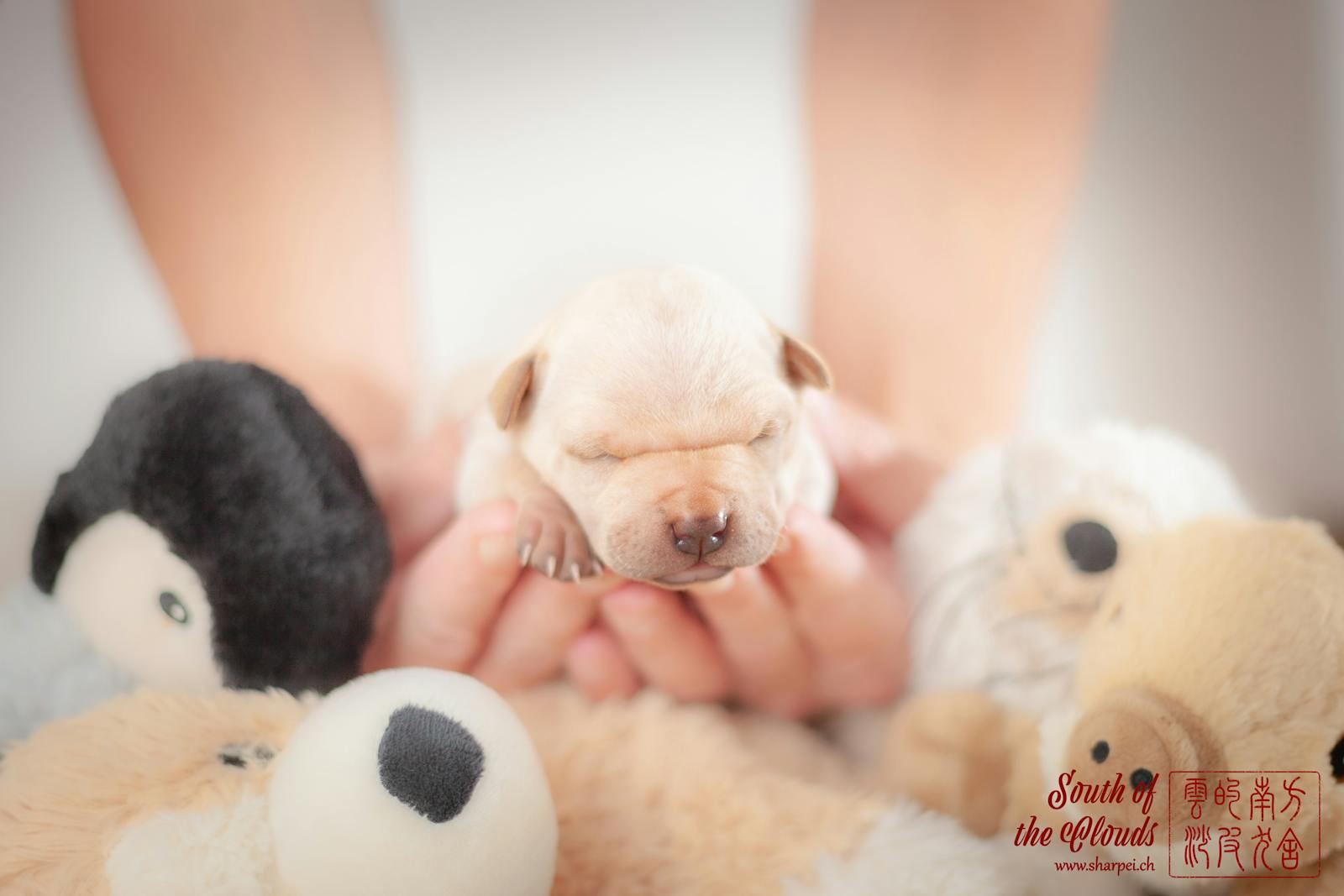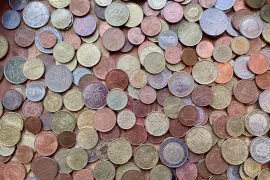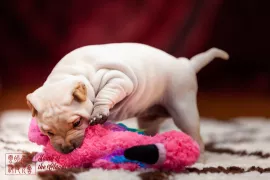The money question
What is a puppy worth?
The other day, when I was having my first cup of coffee, while my dogs were still sleeping comfortably, a post on Facebook caught my eye. "No profit, no puppies". As a breeder, this statement annoys me, but if I try to see it through the eyes of those who take care of abandoned, abused, i.e. unwanted dogs, then I understand it well.
But such posts almost always end up with the wrong addressee. In this case with me at 6 o'clock in the morning.
A few days ago I was looking at my expenses for the past year that I had related to my dogs. I have my own bank account that pays most of the bills for the dogs. And I don't think anyone wants to see that balance. So far I've only had one litter and we're keeping this puppy for now. So the big money hasn't come in here yet. But what is "big money"?
Prices
When I thought about how much to charge for one of my puppies, I pondered for weeks. First, I compared the prices of Swiss breeders of all possible breeds, because there are no other Shar Pei breeders here. Comparisons with other countries make little sense to me, because I live here and have to cover my expenses here, with the usual prices here. And these are twice to four times as high in Switzerland compared to the surrounding countries.
Purebred dogs with FCI pedigree are sold in Switzerland between 1500 and 20,000 francs, according to a September 2020 newspaper article. The price of a Chow Chow is between 3000 and 9000 francs. Basically, as almost everywhere, the rarer and more exotic, the more expensive. Hey, I thought to myself, we're rare and exotic too, so now I can really cash in!
But most of you are certainly missing the logic here, it was no different for me. After all, the average ongoing and incurred costs are the same. Puppy vaccinations cost the same for a Poodle as they do for a Chow Chow.
And now you quickly think: "Some of them just want to make a profit." And that may even be true here and there, but often it does not.
The more I researched, the more I realized how complex this topic is.
Relations
So far I have not found a conclusive answer, because in the end it is the individual assessment of a reputable breeder as to what his work is worth to him. How much he has invested in his breeding, because that is one of the most important points. But can this be shown transparently?
This can be done individually and as a result you would find that some breeders are certainly making a nice profit, others are making losses and others are at least covering their costs.
As a buyer, you always want to buy good quality at a reasonable price. And if a breeder sets high quality standards for himself and for the rearing of his puppies, then a higher price is certainly justified.
I have spoken to many breeders around the world about their thoughts on pricing and the overwhelming consensus is that the financial investment plus the hours worked almost never aligns with the price that breeders sell their puppies for.
Individual relations
And even within this group there are big differences. Some breeders let their puppies go at 8 or 9 weeks, others only at 12 weeks, which is the best time from the point of view of the puppy's development, as current behavioral studies show. However, these additional 4 weeks is the most labor intensive time. Because a lot has to be learned and practiced individually with each puppy.
Many older breeders still think that the puppies should be left alone with their mother for the first 14 days, and she will take care of them. And it's true that the mother usually does just fine. But we also know today that targeted positive early education in the first 14 days is very important for the development of the puppies. One breeder goes on many excursions with his gang of puppies, the other doesn't.
In the case of the Shar Pei, there are also health tests that many breeders do if the result is not already clearly specified by the parents.
Interestingly, it is mostly those breeder, who put in the most work, that are embarrassed to ask a reasonable price.
There are breeders who will sell puppies much more expensive if they are tested free of the genetic diseases of their breed. Others, on the other hand, presuppose an optimal test result with their regular price and sell puppies with poorer results at a correspondingly lower price.
Exotic money machine
But what about the price difference between the different breeds? Why does an exotic breed cost so much more than lets say a Labrador. Since vet costs should be the same. If we also assume breeders who do the same amount of work, nothing would differ there either.
On the one hand, the health tests that are (hopefully) carried out on the parents and puppies, which vary greatly in number and cost, certainly come into play. One factor may also be the more difficult planning of litters with exotics, because the optimal stud dog often lives so far away that the very costly route of artificial insemination has to be taken and semen is sometimes flown halfway around the world.
Apples and pears
In the end, it's like comparing apples to pears, oranges to bananas. It doesn't work if you take a closer look under the individual surfaces. There are those who spend a lot and those who spend little time, those who invest a lot and those who invest little in their breeding. Those who let puppies go early and those who let puppies go late.
There are those who are confident in charging a reasonable price, and there are a much larger number of breeders who do not dare.
"No profit, no puppies" then? This certainly does not apply to the breeders who breed consciously and conscientiously.
Puppy Farms
But what about the backyard breeders and puppy farms?
I have never personally dealt with the actual expenses of a backyard breeder or a puppy farm. But I can very well imagine that no puppies would be produced if there wasn't a nice profit for them, for a minimal amount of work. But these „breeder“ certainly don't bother with such comments. As long as the market is there, production will continue.
For the most part, however, it is the responsible, very hard-working breeders who often feels wrongly attacked by such statements.
Because we love our dogs and puppies!





